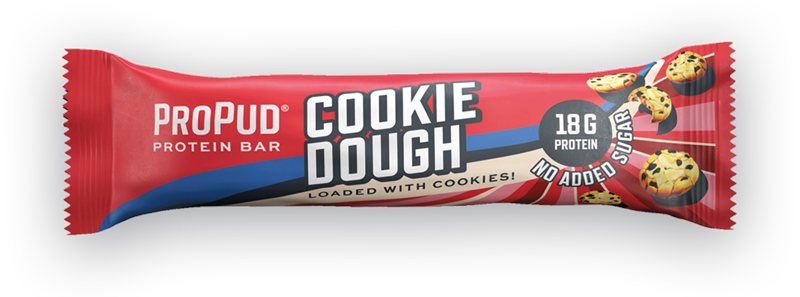
House of Nutrition uses cookies. Do you want to know what this means for your privacy? Then read our privacy and cookie statement.
Endurance sports such as running, cycling, and triathlons require not only physical training but also proper nutrition to optimize performance and promote quick recovery. In this blog, we delve deeper into the role of nutrition in endurance sports and examine how nutrition, including diet plans and supplements, affects endurance athletes’ stamina and aids in post-intense training recovery.
Carbohydrates are the primary energy source for endurance athletes, stored in muscles as glycogen and used during prolonged efforts. It is crucial to incorporate carbohydrate-rich foods into the diet, such as whole grains, pasta, rice, and fruit. Carbohydrate loading, where glycogen stores are maximized, is a strategy commonly employed before major competitions.
By optimizing glycogen stores, runners can enhance their endurance and reduce fatigue during marathons. Carbohydrate loading, also known as carb loading, is a nutritional strategy frequently used by endurance athletes to maximize their glycogen stores. Glycogen is the main energy source for endurance sports like running. Here are the steps for effective carbohydrate loading:
Step 1: Tapering (Reducing Training)
In the week leading up to the marathon, gradually reduce the duration and intensity of your workouts. This is known as tapering. This allows your muscles to recover fully while still storing sufficient energy.
Step 2: High-carbohydrate diet
About three days before the marathon, start increasing your carbohydrate intake. Approximately 70-80% of your total daily calories should come from carbohydrates. This means increasing food sources such as whole grains, pasta, rice, potatoes, fruits, and vegetables. A carbohydrate supplement can also provide valuable support.
Step 3: Adequate Hydration
Ensure you stay well-hydrated during carbohydrate loading. Consume water and other hydrating beverages, such as isotonic or carb-charged drinks, regularly to prevent dehydration.
Step 4: Limit Fiber and Fats
Avoid foods high in fiber and fats, as they can burden your stomach and cause digestive issues during the race.
Step 5: Recovery and Rest
In the days leading up to the race, it’s essential to get enough sleep and rest. Your body needs time to recover and store energy for the big day.
Important Notes:
- Individual Variations: Every body is different. Some people can tolerate more carbohydrates than others. It’s important to listen to your own body and see what works best for you.
Proteins are crucial for muscle recovery after intense workouts. They aid in repairing muscle tissue and promoting muscle growth. Lean protein sources like chicken, fish, eggs, and legumes are ideal for endurance athletes. It’s also important to consume proteins immediately after training to expedite recovery. Whey protein is a fast-digesting protein shake that should not be overlooked after a workout.
While often avoided, healthy fats are essential for endurance athletes. They serve as a source of sustained energy, especially during longer efforts. Unsaturated fats found in nuts, seeds, avocados, and olive oil are excellent choices.
Pre-training meal
A balanced meal rich in carbohydrates, moderate in proteins, and low in fats consumed 3-4 hours before training can provide a steady supply of energy during the workout.
During training
During long training sessions, fast-acting carbohydrates like energy gels, sports drinks, and bananas are convenient for maintaining energy levels. Staying hydrated with water or electrolyte-rich sports drinks is important.
Post-training nutrition
Within 30 minutes after training, it is crucial to consume proteins and carbohydrates. A protein shake with a banana is an excellent choice to promote muscle recovery and replenish glycogen stores.
Electrolytes: Endurance athletes lose electrolytes like sodium and potassium through sweat. Supplementing with tablets or powders can prevent muscle cramps and maintain hydration.
Creatine: Creatine supplements have been shown to improve explosive power and endurance, especially in short-duration, high-intensity activities such as sprinting.
BCAAs (Branched-Chain Amino Acids): BCAA supplements reduce muscle damage and accelerate the recovery process. They are particularly useful during long workouts and races.
Beta-alanine: Beta-alanine is an amino acid that reduces fatigue by slowing the buildup of lactic acid in muscles. It can enhance endurance performance, especially in high-intensity, longer-duration activities.
Caffeine: Caffeine is a well-known stimulant that reduces fatigue and improves mental alertness. It can help maintain focus during long training sessions and races. Endurance athletes can take caffeine supplements or opt for natural sources like coffee.
Nitrates: Nitrate-rich foods, such as beets and leafy greens, can enhance endurance by increasing the body’s oxygen efficiency. There are also nitrate supplements available that can boost performance.
Iron: Iron deficiency can lead to fatigue and reduced endurance. Endurance athletes, especially women, should ensure they consume sufficient iron or take iron supplements when necessary.
Vitamin D: Vitamin D plays a role in muscle function and immune system regulation. Endurance athletes living or training in areas with limited sunlight may consider vitamin D supplements, especially during the winter months.
Probiotics: Healthy digestion is essential for optimal nutrient absorption and immune function. Probiotic supplements promote a healthy gut flora, which can contribute to overall health and recovery.
Please note that these steps are general guidelines. Every individual is unique, so it’s important to listen to your own body and experiment with what works best for you. Collaborating with a nutritionist or sports physician can help you create a customized plan tailored to your needs and goals as an endurance athlete.